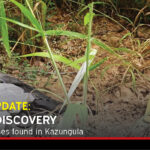On the front lines of HIV/AIDS battle
The latest AIDS Impact Survey shows Botswana is doing well in reducing the spread of HIV, through targeted programmes such Prevention of Mother to Child Transmission.
The shows that the country has exceeded the UNAIDS 95-95-95 targets, which call for 95 percent of all people living with HIV to be aware of their status, 95 percent of those aware of their status to be on antiretroviral treatment (ART), and 95 percent of those on ART to achieve viral load suppression.
This achievement was through the concerted efforts of the Ministry of Health and NGO’s such as Botswana Business Coalition on AIDS (BBCA).
Frank Phatshwane is one of the people who have been at the forefront of the war against AIDS as an employee of different NGOs such as BOCAIP and ACHAP.
The married father of two from Makuta village is the current Executive Director (CEO) BBCA, and in this interview he fields questions from The Voice reporter Kabelo Dipholo.
Phatshwane sheds some light on the country’s ambitious target to end HIV/AIDS by 2030, and the challenges they face in this daring dream.
Q. You’re one of the leading figures in the fight against AIDS through your past and present involvement with different NGOs. Kindly tell us who Mr Phatshwane is?
Although my Identity Card says I’m from Tutume, I’m actually from Makuta village.
That’s where I started my primary school until standard five.
I later moved to Tutume where I also completed both my Junior and Senior school at McConnel College.
Upon completion I went for my National Service in Hukuntsi where I was a Court Clerk.
Its here that under the guidance of the late Kgosi Leipego I learnt a lot about life.
I joined the National Library Services after my national service, and later enrolled with the University of Botswana doing Library and Information Services.
I married Sekgabo Phatshwane in 2006, and together we’ve two sons.
Q. Sounds like an exciting journey. How did you end up at BBCA?
I parted ways with the Library, and joined BOCAIP and later ACHAP.
In 2007 I joined BBCA as a Programmes Officer and was appointed the CEO in 2012.
Over the years as BBCA leader I was also able to pursue my academic dreams.
I graduated with a Masters in Development Stduies from the National University of Science and Technology (NUST) in Zimbabwe, and I’m currently reading for my PHD.
Q. What exactly does BBCA do?
Our mandate is to manage and coordinate the private sector response to HIV, TB, Malaria, noncommunicable diseases and any other diseases outbreaks.
We ensure that what the private sector is doing is aligned to National Disease Strategy.
Our objective is also to look at advocacy, awareness, research and capacity building where the private sector is lacking.
Q. The fight against AIDS seems to have eased down. The campaigns are not as robust as they used to be. Is HIV/AIDS still a concern in Botswana?
I’ve to admit that HIV/AIDS is no longer a hot selling cake as it used to be.
Looking at the recent AIDS Impact Survey, it is definitely clear that the war has not been won yet.
This is despite the good achievements of our country in exceeding some targets.
There’s is a light at the end of the tunnel but, the battle is still on.
Q. Government has always been at the forefront of this battle. What role is the private sector playing?
Our focus at the beginning was medium term until around 2000 when we took a multi-sectoral approach and launched the ‘Ntwa e bolotse’ campaign.
In 2005 private companies with an AIDS policy and other diseases stood at a mere five percent, but today were are at 87 percent.
This is a significant improvement, and I can boldly say efforts by the private sector is visible and most companies are committed.
Companies today have robust workplace programmes and also responding to the messages on NCDs.
Q. What are your biggest challenges in your fight against HIV and other diseases awareness?
We still have companies that believe they have no role to play as far as combating AIDS is concerned.
They believe it is the role of government, especially in the retail and tourism sector.
We are however not giving up on them, but continue to engage them, to show them the importance of embracing the AIDS strategies.
Another challenge is that we get most of our funding from government, and there crops up the issue of sustenance with vey little coming from international donors.
Q. Men seem to be dragging their feet when it comes to testing, and as a result are dying in their numbers. Do you have any men specific programmes?
Yes, we do have targeted planning.
In our awareness sessions we also target these groups separately.
We target women, girls, boys and also have men talk.
This targeted planning is also reflected in the National AIDS Strategy.
Q. Botswana has approved the use of injectable ARV drugs for both prevention and treatment. How much education has gone into this?
We are yet to get information about this.
I however believe that more will be revealed after the launch of the AIDS Impact Survey.
Q. Is HIV/AIDS still a death sentence?
It cannot be classified as such.
It is just like any other disease, and not a chronic infection anymore.
We’ve people who have been living with the virus for decades, and this is proof enough that the virus is manageable.
Q. Is the AIDS battle a winnable one?
If you look at the UN 95-95-95 target, and our target of ending the disease by 2030, I think we’re on the right track.
In my personal opinion, I believe the battle is winnable.
The statistics gives me hope.
Q. When you’re not out spreading the HIV message what else do you do. How do you relax?
I have a very busy schedule, but when I’m home I enjoy cycling with my two sons, or taking a walk to keep fit.
If not I prefer to go to the farm and tend to the crops
Q. Thank God its Friday! What do you have planned for this weekend?
I’ll probably go tend to the crops.
I can’t stay too long without listening to birds chirping in the wilderness.

















